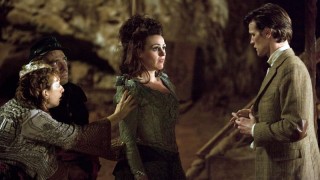Ridan Publishing released late last week an ebook edition of Joe Haldeman’s classic award winning science fiction novel The Forever War. A must read for any die-hard fan of science fiction, especially the military scifi subgenre.
My review, written two years ago during the Summer of 2009, follows:
 The Forever War by Joe Haldeman
The Forever War by Joe Haldeman
My rating: 3 of 5 stars
3.5 stars
If I had been born in the 50s and also been born male, I’m positive I would have loved this story. All the pain, confusion and futility of Vietnam but strung out and extrapolated over three thousand years (or about three years relatively speaking). The last fourth of the book salvaged the first three parts.
I didn’t have any trouble grasping the science, the physics or the technology. Haldeman did an excellent job conveying them without making me take a course in quantum physics or string theory.
But again, similar to The Accidental Time Machine, character development suffers, even though we spend months bored in transit. I personally didn’t care for or agree with his predictions for societal changes on Earth and elsewhere that occurred while Mandella travelled at relativistic speeds. I did agree with the morale of his story, which is similar to Ender’s Game in philosophy.
I’ve now read most of the classic (and one neo-classic) military science fiction novels. My personal favorite seems to be Old Man’s War by John Scalzi, followed closely by Heinlein’s Starship Troopers. Haldeman’s Forever War follows and the distant finisher remains Armor by John Steakley.







